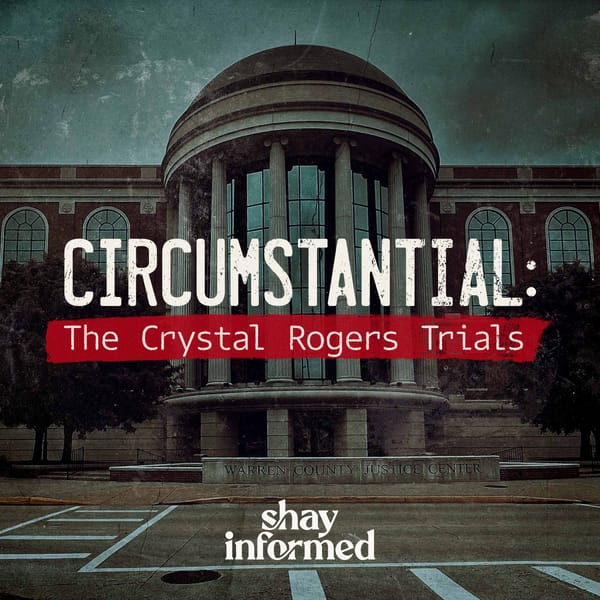"When you kill a six year old, you forfeit your right to live free"; lawmaker plans to propose new laws after controversial release





The two new bills aim to prevent another Ronald Exantus case from happening again in Kentucky.
"I'm Shay McAlister, and this is Shay Informed: an independent, ad-free platform dedicated to honest journalism with compassion and clarity.
Are you new here? Sign up for the free newsletter or subscribe to support our mission.
When State Representative TJ Roberts first heard that Ronald Exantus had been released after serving just seven years for killing 6-year-old Logan Tipton, he didn't just get mad. He got to work.
"When you kill a six year old, you forfeit your right to live among civil society for the rest of your life, plain and simple," Roberts told me this week. "I found it to be an egregious miscarriage of justice."
But Roberts, a Republican who represents District 66 in Northern Kentucky, knew that outrage alone wouldn't fix the broken system that led to Exantus walking free. So he did what lawmakers are supposed to do- he drafted legislation to make sure it never happens again.

Roberts has filed two bill requests that he says will be introduced on day one of Kentucky's 2026 legislative session, and both directly address the failures that allowed Exantus to be released.
Bill Request 1050 would completely abolish Kentucky's mandatory reentry program. That's the very program that required the Department of Corrections to release Exantus even though the Parole Board had unanimously voted to keep him in prison.

"It would make it to where, if you are an inmate and you are seeking release and you are eligible for parole, you must go before the parole board, and the vote of the parole board is binding," Roberts explained.
His reasoning? The Parole Board is made up of actual human beings who can look an inmate in the eye, evaluate their remorse, review their behavior behind bars, and ask themselves a simple question: Would I be comfortable living with this person in my neighborhood?
"I think that is much more logical than just putting up whether or not criminals are released to mere words on paper," Roberts said.
And this isn't just about the Exantus case. "This isn't just a one off, it's a broken program that is putting some of the most vile criminals imaginable back on our streets," he said.
Bill Request 1051 tackles another glaring issue in the Exantus case- the insanity defense.
During his trial, Exantus was found not guilty of murder by reason of insanity, but somehow convicted of assault for attacking Logan's father and sister. All of these crimes happened within minutes of each other, in the same house, during the same rampage.
"That didn't make any sense to me," Roberts said. "The only explanation I could think of is jury misconduct, where they came to a bargain verdict, which is illegal already."
His second bill would require juries to apply the insanity defense to all charges arising from the same incident. In other words, you're either insane for the whole crime spree or you're sane for the whole crime spree. No more cherry-picking.
If Exantus truly was insane enough to kill a child, Roberts asks, why wasn't he immediately committed to a mental institution for life after his prison sentence? "That's beyond me," he said. "If you truly were insane to the point that you kill someone, I think you should be institutionalized for the rest of your life, just plain and simple."
Exantus broke into Logan Tipton's family's Versailles home in December 2015 and stabbed 6-year-old Logan to death with a knife from their own kitchen while the child slept. The attack was completely random- Exantus had no connection to the family whatsoever.
In 2018, Exantus was found not guilty of murder by reason of insanity. The jury found him guilty but mentally ill of assaulting members of the Tipton family in the attack. But those assault charges are not considered "violent offenses" in Kentucky, so he was not required to serve the majority of his prison sentence and released after serving seven years.
The Kentucky Parole Board voted unanimously to keep him in prison, but Kentucky law required the Department of Corrections to release the inmate on Mandatory Reentry Supervision.
Roberts's bills would fix that. They would put human judgment back into the parole process and close the loophole that allowed a split verdict on insanity.
As Roberts put it: "We have an obligation as a society to protect children. We need to protect the very young. We need to protect the very old. We need to protect the frail. These are vulnerable populations."
If these bills pass- and it sounds like they will- Kentucky will have taken a concrete step toward honoring that obligation.
Like what you see? Learn more about Shay Informed here! This is honest journalism with compassion and clarity.








